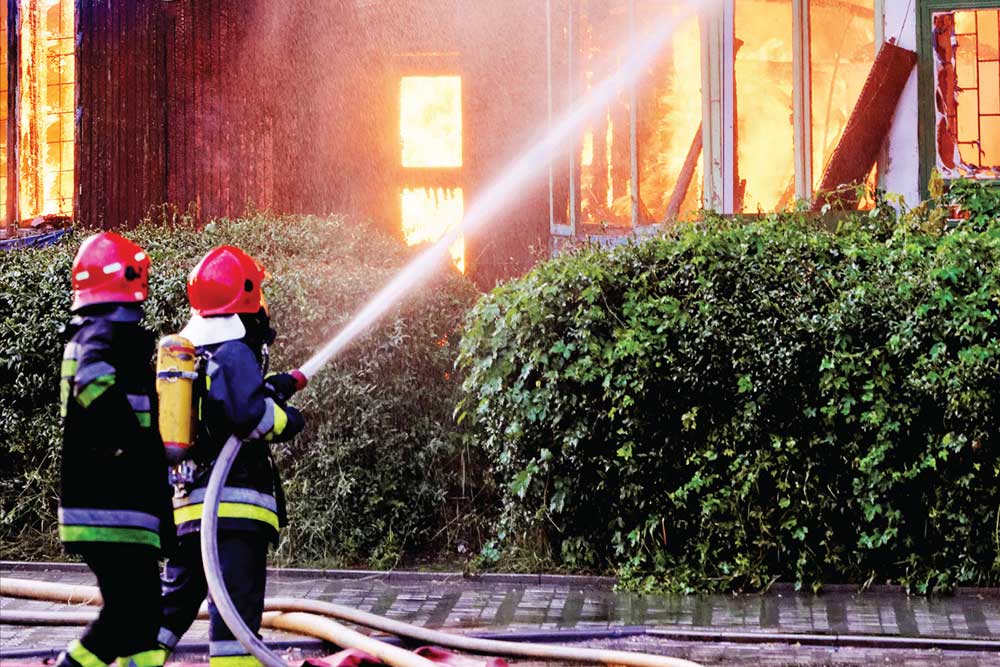With the job concentration in major metros like Mumbai, Delhi, Kolkata, and others, a massive population explosion can be seen in these cities. And, to sort the space crunch, the demand for vertical housing has increased by leaps and bounds. However, these high rises have their own sets of troubles, fire safety being a major one.
Deepak Sankar, Senior Vice President and National Head - Speciality Lines and AIGC, Tata AIG General Insurance, said, “Housing societies and high rise buildings are generally exposed to various types of perils and operation of these perils can have devastating effect on its financials. Laws applicable to such societies generally mandates them to adequately insure their building structure and other common utilities against fire and allied perils like lightning, storm, flood, inundation and earthquake.”
Apart from earthquakes, the residents of these buildings are also vulnerable to a fire breakout, to minimise which, the owners and tenants must have home or property insurance to mitigate the impact at the time of disaster. No matter how much precaution you take, there will usually be some loss caused. In the recent past, we have witnessed a rise in fire breakouts and the damages caused by it. “To minimise the financial impact of the damage caused, a fire insurance policy is recommended. It helps to cover the cost of replacement, repair, or reconstruction of property. It covers building and other assets such as water tanks, elevators, pipeline and fittings, electrical installations, diesel generator,” suggested Sankar.
Our dependency on technology and home appliances could also lead to unforeseen danger as there is always the risk of short circuit, one of the main reason of fire mishaps in high rise buildings. A major drawback of these high rises are that often the balconies and windows are grilled. Also, in case of a breakout, the race down the vertical staircases will witness utter chaos. Therefore, the staircases should be spacious enough to evacuate a crowd at the time of emergency.
Therefore, in order to secure oneself from the damages incurred, property insurance is a must. A property insurance premium is arrived by applying the fire rate (calculated by the Insurer) on the sum insured, however the rates vary on factors like sum insured, risk location (rates differ as per different earthquake zones), class of construction, add-ons required (property insurance also provides insured option to increase their coverage additional to standard cover). Apart from these, insurers also consider factors such as, preparedness for fire fighting, past loss history, kind of risk involved, elevation and accumulation of exposure in calculating rates. This clearly shows that the building which follows all the safety measures are likely to pay lesser premium.
Before buying home policy always ensure and check the coverages to meet your expectation. Also, a policy for multiple years should be opted in order to get discount.
Further Shankar added, “In case of a fire incident, every insured should contact the insurer and register a claim preferably in writing, stating the correct policy number. A claim form needs to be filled and submitted it to the insurer in order to initiate claim process. The claim form requires basic information about the insurance, a description of how the fire or the peril occurred and will usually highlight the furniture, fixtures and other assets that were destroyed during the incident with the resultant financial implication”.

Once submitted, a surveyor will visit the premises to assess the damages and to validate the claim that has been made. Surveyor may ask for an asset list of the property, and after discussing the case with concerned parties, will submit the claim to the insurance company along with his report. During this process, the surveyor may need additional documents and information in order to arrive at a conclusion, and may ask for documentary evidence. This could include photocopies of necessary documents, a history of the property, or other requisite details.

Even if the documents are misplaced or missing, in case of fire, the policy number is sufficient to register a claim. A database of all current policy as per Insurance Regulatory Development Authority of India’s (IRDAI) mandate is maintained and hence cannot be repudiated.
During natural calamities like Odisha cyclone Fani, insurance regulator stepped in and asked insurers to initiate immediate action to ensure that all reported claims are registered and eligible claims are settled expeditiously.
India witnesses a natural disasters every year. Home insurance can minimise the heavy losses during these natural disasters. However, the penetration of home insurance continues to remain low due to lack of awareness.
nirmala@outlookindia.com







